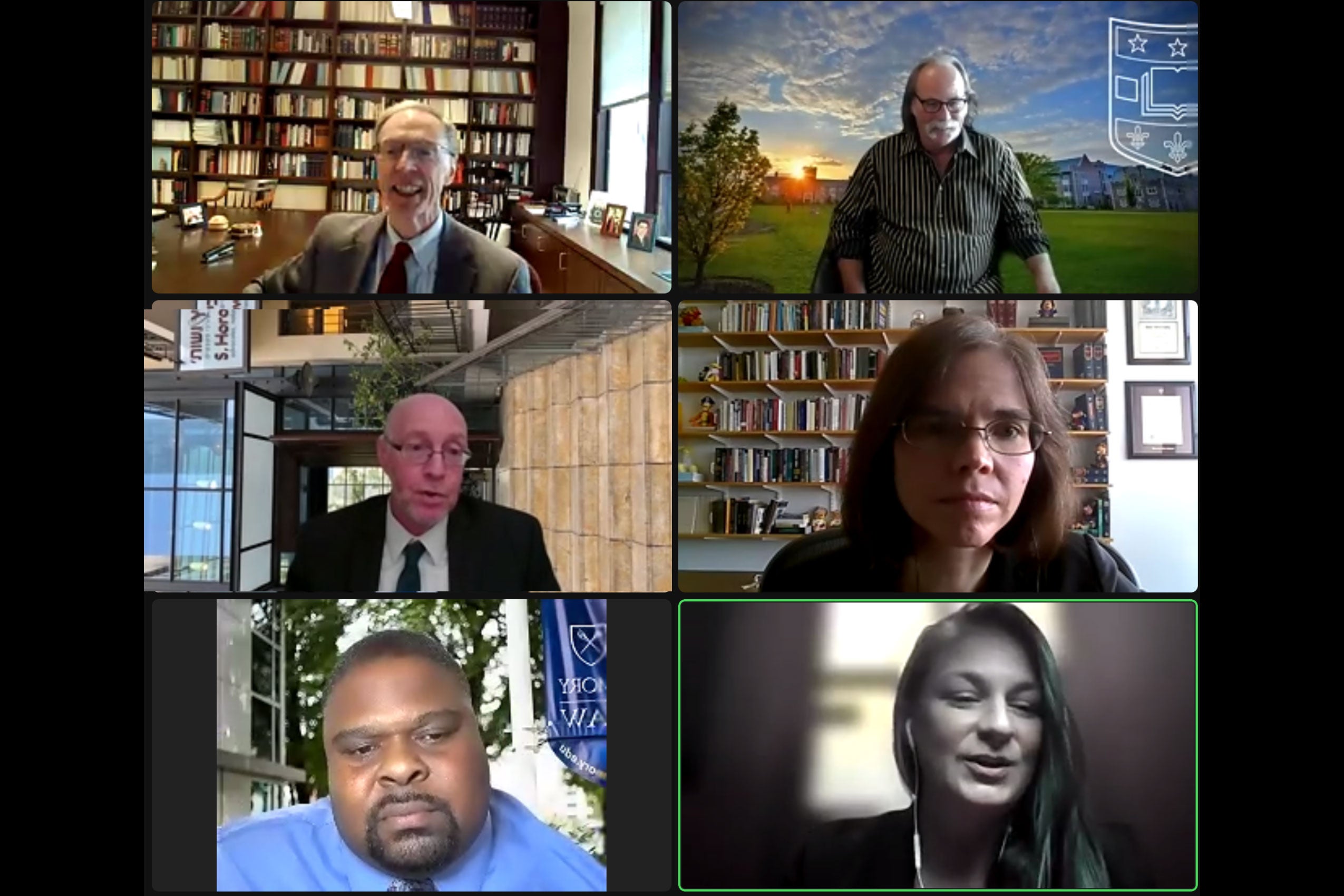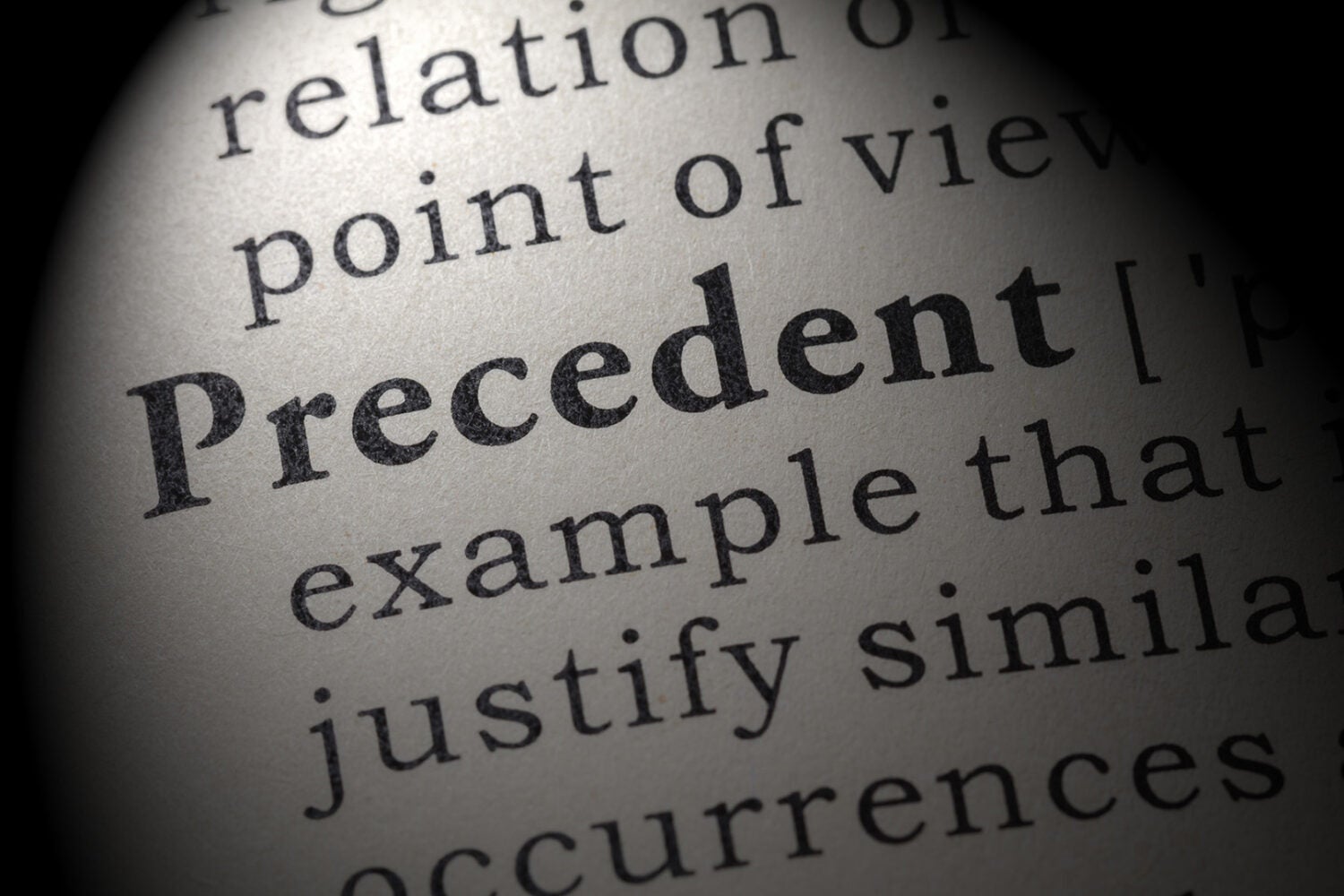When asked at his 2005 Senate confirmation hearings about the legal doctrine of stare decisis, or adherence to the Supreme Court’s prior rulings, then-Judge John Roberts responded: “[p]recedent plays an important role in promoting stability and evenhandedness.” He also explained that, when weighing whether to overturn an important decision like Roe v. Wade, justices need to consider many factors, before adding that “I do think the considerations about the Court’s legitimacy are critically important.”
Seventeen years later, in the wake of a series of controversial rulings overturning longstanding precedents related to abortion rights, environmental protection, the separation between church and state, and more, Roberts seemed to strike a slightly different tone. Appearing at a conference in September, he argued that while the high court’s “decisions have always been subject to intense criticism,” often by its own members, disagreement with an opinion “is not a basis for questioning the legitimacy of the Supreme Court.”
The question of the Supreme Court’s legitimacy was also recently on the minds of legal scholars speaking at a Harvard Law School panel on Monday titled “Stare Decisis and the Roberts Court.” It was the second in a yearlong lecture series examining “The Supreme Court in a Constitutional Democracy.” Introducing the panel, Harvard’s Story Professor of Law, Richard Fallon, said that many experts, who “have argued that adherence to precedent is crucial to the Supreme Court’s legitimacy,” worry what the fallout would be “[i]f the perception broadly took hold that the Supreme Court is just another partisan institution.”
“[T]he precedent shattering decisions that we have had recently do not really form an exception to the pattern of the Court announcing landmark decisions in cases that overruled others.”
Michael Dreeben
According to the first panelist, Michael Dreeben, a former longtime member of the Solicitor General’s office who argued more than 100 cases before the justices, “the question whether the Roberts Court cares about stare decisis, whether individual justices care about it, whether it is different from the past, is both a little bit impressionistic and a little bit empirical.” He noted the Court has repeatedly upheld precedents with which even justices in the majority may have otherwise disagreed. In 2002, for instance, Chief Justice William H. Rehnquist authored a 7-2 opinion in Dickerson v. United States upholding the constitutionality of Miranda warnings, despite believing the original case had been “wrongly decided.” The warnings, Rehnquist wrote, “have become part of our national culture.”
Citing a 2018 report by the Congressional Research Service, Dreeben noted that the Supreme Court overruled precedent five times in the 19th century, 116 times in the 20th century, and 20 times between 2000 through 2018. “[T]he precedent shattering decisions that we have had recently,” he concluded, “do not really form an exception to the pattern of the Court announcing landmark decisions in cases that overruled others.” To bolster his point, he cited a long list of cases from recent history that overruled previous precedents, including Brown v. Board of Education, which overruled Plessy v. Ferguson, and Obergefell v. Hodges, which overturned Baker v. Nelson.
“The American people do not believe in mechanical jurisprudence … [T]hey know that liberal judges make liberal decisions and conservative judges make conservative decisions.”
James Gibson
James Gibson, the Sidney W. Souers Professor of Government at Washington University in St. Louis, argued that the American people care little about whether the Court adheres to previous precedents and instead focuses on whether their decisions are value-based. “The American people do not believe in mechanical jurisprudence; they do not accept that as an accurate empirical description of how judges make decisions. Instead, they understand that values and ideologies make a difference. Now, I’m not going to say that the American people have a complicated and sophisticated understanding of stare decisis. … But I am saying they know that liberal judges make liberal decisions, and conservative judges make conservative decisions.”
Instead of focusing on stare decisis, Gibson argued, the American people try to divine whether decisions are based on principle or on strategy. “The research shows that the American people expect and accept principled decision making. On the other hand, they detest strategic decision making. Strategic decision making is what politicians do, and especially politicians in Congress.” Political ideology, he said “is perceived as being principled; strategic decision making is not.” To preserve its legitimacy, Gibson advised the Court to worry less about stare decisis and more about “whether its motives are perceived as sincere or strategic.”

Tara Grove ’02, the Vinson and Elkins Professor of Law at the University of Texas Law School, noted that fidelity to precedent isn’t absolute. Every member of the audience, she suggested, could list decisions they think should be overturned, including, for some people, several from the most recent term, such as the abortion ruling in Dobbs v. Jackson Women’s Health Organization. “I think that reflects something really important about the Supreme Court’s role in our modern world, because the Supreme Court’s role is so consequential [that] overturning precedent is extraordinarily consequential and not overturning precedent is also extraordinary, extraordinarily consequential.”
“It’s hard for me to imagine that the public would care about stare decisis itself as a concept,” Grove said. “But the public cares deeply about some precedents.” The question, she argued, is whether the Court should take public opinion into account. Grove listed a host of instances when the Court’s decisions were driven, at least in part, by its estimation of the likely public reaction. In one, Planned Parenthood v. Casey, the Court worried about “likely public reaction to an overturning of Roe v. Wade.” In another, the infamous 1937 “switch in time saved nine” case, many observers interpreted the conservative New Deal era Court’s decision to uphold a state minimum wage law as an effort to preserve its legitimacy and fend off President Franklin Delano Roosevelt’s court-packing legislation. Fear of external reaction, she said, also “led the Supreme Court to slow walk many civil rights cases after Brown v. Board of Education in a way that I think many of us find to be disgraceful.”
“It’s hard for me to imagine that the public would care about stare decisis itself as a concept.”
Tara Grove
While taking account of public opinion may seemingly foster the idea of “democratic legitimacy,” Grove also pointed out that this approach is not without pitfalls. How, for instance, can justices accurately measure the views of the public? And would doing so lead to justice delayed in some instances, as happened when the Court chose in 1955 not to take a case examining Virginia’s ban on interracial marriage, waiting another 12 years to do so in Loving v. Virginia instead.
“The difference between 1955 and 1967 might not seem like such a big deal” to students today, Grove said. But if the Court had similarly waited 12 years to grant a right to same sex marriage, instead of doing so in 2015, many gay and lesbian couples would “still be waiting until the year 2027. So, I think there are really reasons to be concerned about the Supreme Court taking into account its perception of how the public perceives it.”
Asked to predict what the Court might do next in the wake of recent decisions, civil rights expert Darren Hutchinson argued that several other precedents based on substantive due process, the foundation of the original Roe decision which the Court recently struck down in Dobbs, might soon be similarly overturned. These include Obergefell v. Hodges, which legalized same sex marriage, and Lawrence v. Texas, which banned sodomy laws. “[I]t would almost be a reversal if the Court didn’t invalidate Obergefell and other rights, because it’s so strongly implicated that those cases were poorly decided,” he said.
Hutchinson, who holds the John Lewis chair for civil rights and social justice at Emory University School of Law, says he cannot imagine that the current majority on the Court would vote to uphold precedents in these areas with which they disagree simply to satisfy stare decisis. However, he said, Griswold v. Connecticut, which legalized the use of contraception by married couples, might have a better chance of surviving in some form. “The stakes of saying that there’s no right to contraceptive use completely,” he argued, “I think would be differently received, because of the magnitude of the people that will be affected,” compared to the smaller numbers impacted by a repeal of the right to same sex marriage. However, he warned that the Court could chip away at the precedent for minors or people who are not married.
“[W]hat happens if a majority of the public deems the Supreme Court or federal courts generally to be illegitimate?”
Darren Hutchinson
More generally, Hutchinson argued that “because gays and lesbians or LGBT people are a smaller percentage of the population, I think it would be easier for the Court to overturn those cases that are very important in terms of humanizing that population than it would be to overturn a broader set of protections and liberty interests.” Combined with the fact that “the tradition of recognizing LGBT rights is much shorter than the traditional abortion and contraception,” he finds it difficult to imagine the Court “affirming Obergefell ruling today.”
Kimberly Robinson, a Supreme Court reporter for Bloomberg Law, argued that all but one of the current justices, Justice Clarence Thomas, care about both precedent and about the perceived legitimacy of the Court. “I can’t quite remember a time when the justices were in the headlines so much over their summer break as they were this term,” she said. “[W]e’ve seen historic lows of the Court’s legitimacy and its approval rating. And I think that’s really the only reason that you care about stare decisis.” That, she argues, is the only motivation a justice might have for upholding precedents with which they disagree. ‘[T]here’s no reason to follow a case that you think is wrong unless it is for the legitimacy of the court,” she said. “And so, you know, that’s caused a lot of the justices to speak in their public comments about legitimacy, about stare decisis.”
“[T]here’s no reason to follow a case that you think is wrong unless it is for the legitimacy of the court.”
Kimberly Robinson
While panelists and others continue to debate the relationship between stare decisis and the Court’s legitimacy, another important question, posed by Hutchinson of Emory Law, went unanswered. “[W]hat happens if a majority of the public deems the Supreme Court or federal courts generally to be illegitimate? … I can’t imagine it means that the Court shifts into some kind of more liberal stance, given how ideological it is at the moment. But legitimacy as an abstract concept has to give way to something more meaningful in terms of how the public treats it and how the other branches of government do as well.”
